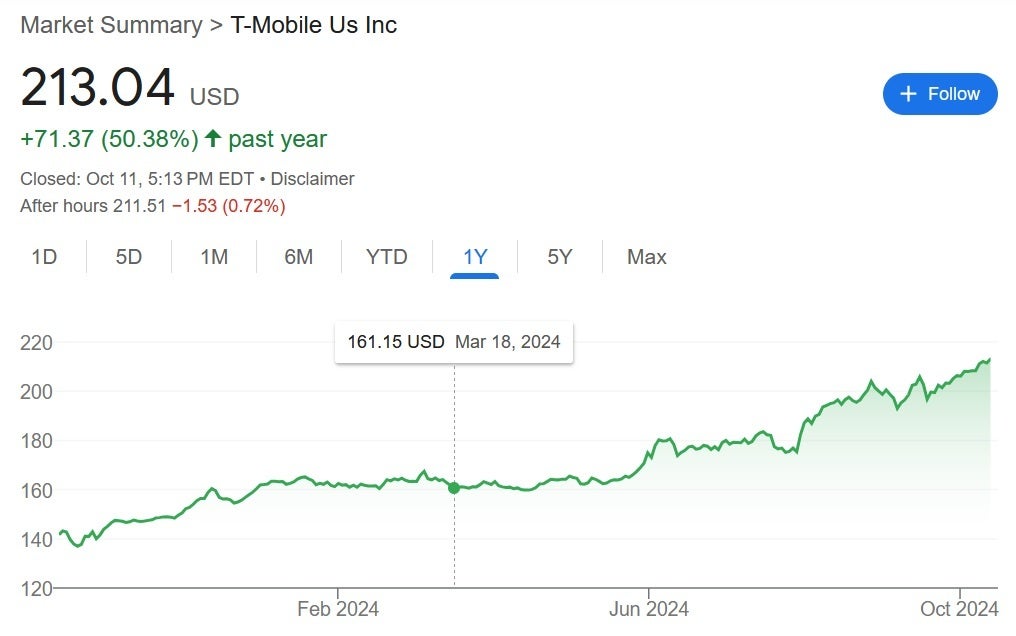But the story focuses on T-Mobile‘s fixed wireless and fiber businesses. The company has a lead in fixed wireless which sends 5G signals to homes. The carrier recently hiked its forecast and now expects to have 12 million fixed wireless customers by 2028 from the eight million expected next year. But T-Mobile might have already reaped the rewards from picking low-hanging fruit and might be having problems finding new customers for the service. During the second quarter of this year, the company added 406,000 fixed wireless subscribers which was down 27% year-over-year.
S&P expects revenue from fiber to triple fixed wireless revenue by 2027

T-Mobile shares are up 50% over the last year. | Image credit-Yahoo
“There’s nothing that beats fiber in terms of the marginal cost of carrying the next unit of traffic. And as a result of that, it’s always going to be more cost-effective and better performance than any other technology out there. And it will carry the lion’s share of workloads, and that’s why we’re making the bet on that infrastructure investment.”-John Stankey, AT&T CEO
Why T-Mobile investors should be concerned
T-Mobile has promised to return $50 million to stockholders through dividends and buybacks. But the money might be put to better use by purchasing companies with fiber. Barron’s mentions Google Fiber, Lumen Technologies, and Windstream as three possible candidates for T-Mobile to go after. Oppenheimer analyst Timothy Horan says that T-Mobile has put aside $20 billion for possible mergers. That might not look good for investors who would prefer that the funds be distributed to them through dividends, or used to reduce the number of shares outstanding by announcing a share buyback.
Barron’s also notes that while T-Mobile‘s shares trade at 23 times earnings, both AT&T and Verizon trade at less than 10 times earnings. On Wall Street, T-Mobile‘s stock has earned a premium perhaps because of the reputation it earned under John Legere as the fastest growing and most innovative of the major wireless providers.
Should investors feel that too and decide that T-Mobile is no longer worth a premium P/E ratio, T-Mobile could end up trading closer to the 10x earnings that AT&T and Verizon trade at which would knock the stock down sharply.

